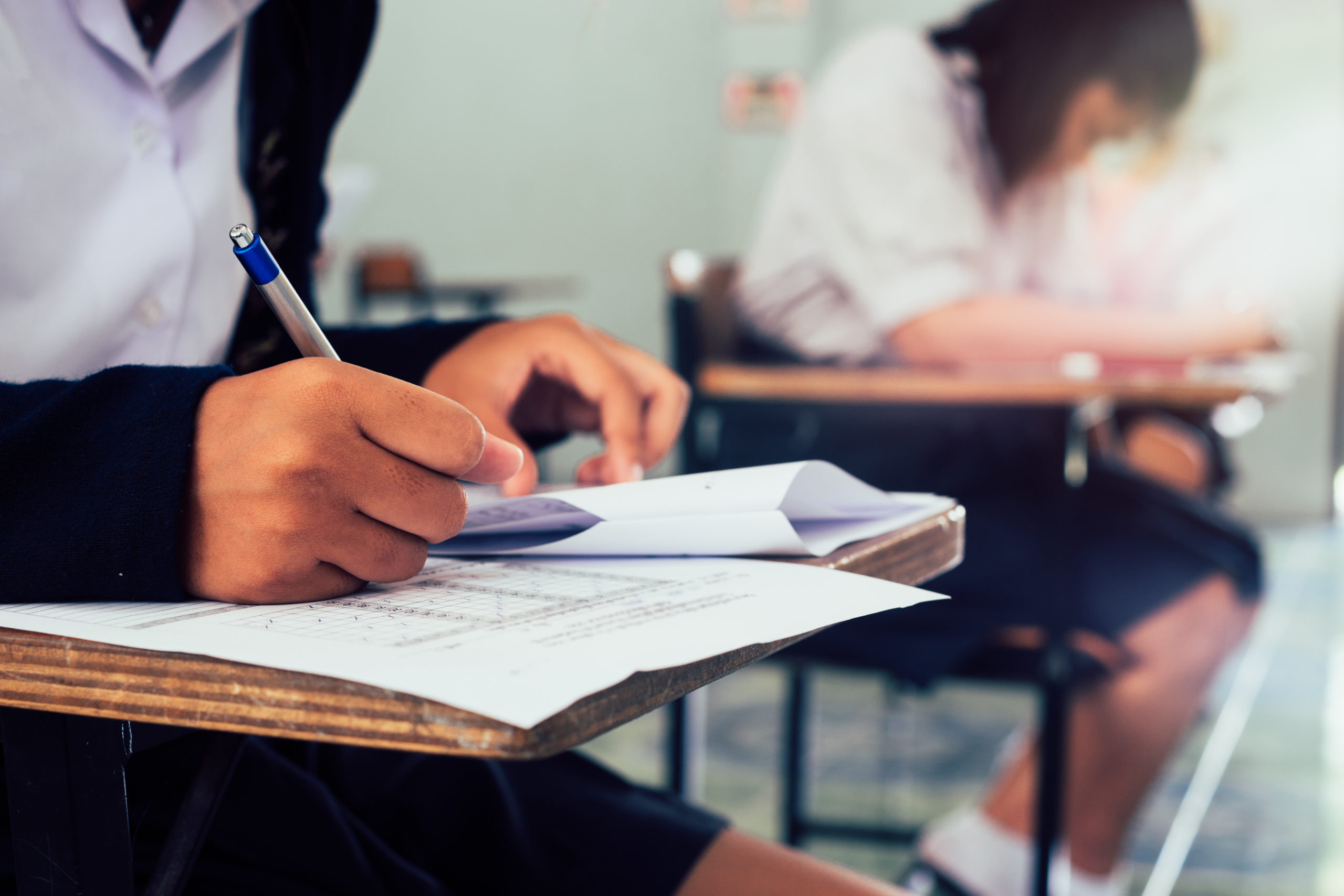Written by The Children’s Society in partnership with Oxford University Press
As we emerge from the upheaval and disruption of the pandemic you could argue that it was young people who paid the highest price, especially those who were taking exams.
The Children’s Society (TCS) has been carrying out research with children and young people about their well-being for over ten years. In that time the Good Childhood Report has found there has been a worrying decline in young people’s well-being.
It is difficult to pin-point exactly why this is, but this well-being research shows that young people are more unhappy with school than other aspects of their lives. Along with school comes exams.
Young people have told TCS how concerned they were about doing well in their exams and the impact this would then have on their future opportunities:
“I don’t want to fail or mess up on a test because it will affect my future if I don’t get good grades. However, I think there is a wide range of job opportunities but a lot of competition to get these jobs.“
“Exams affect future. We focus so much on GCSEs due to the emphasis of importance of them. This means that we think that these exams define our future even though we can get anywhere with hard work.“
“I’m really worried about not passing my GCSEs and not getting my targets in life.“
Young People
According to The Children’s Society’s research from 2020 they found that young people in the UK ranked lowest for life satisfaction and for sense of purpose in life, out of the 24 European countries studied. Young people in the UK also had the greatest fear of failure. The challenges that young people have faced in relation to their schooling and access to education have been amplified over the last two years of the pandemic. For two years in a row, formal examinations were cancelled, with young people questioning how this change will impact them in the future.
“It has worried the years that have started GCSEs such as Y9 and 10. It has put enormous amounts of pressure on us and makes us anxious that we won’t achieve the grades we could of.”
“I’m scared that the school has closed down. I’m worried about my exams next year. I need my exams to get a job”
From Life on Hold (2020)
The cancellation of exams is just one of many disruptions to education that young people have had to deal with as a result of the coronavirus pandemic. When schools were closed during the first lockdown, they were suddenly forced to move online to distanced teaching.
TCS heard from young people that there is also a sense of loss. During the course of the pandemic young people, despite their teachers’ valiant efforts, have missed a significant proportion of the education they otherwise would have received – and a fear for how they will make this up.
“It’s going to make school harder as we missed lessons and a ‘proper’ teacher.“
Young Person
Despite the difficult time young people have had with their education during the pandemic, most young people showed great resilience and coped relatively well with the changes to their everyday lives. For many years, TCS has run well-being and mental health drop-in hubs throughout the country where young people have the space to talk about anything that is bothering them. Support has been provided throughout the pandemic for those who needed it, and services are still helping young people every day. The charity hope these kind of spaces become more widespread as we know how vital talking is for young people to look after their well-being.
As we move out of the pandemic and into exam season The Children’s Society’s mental health and well-being workers, who work directly with young people, have created some top tips on how to deal with exam stress.
It is important to remember that it is really common to feel pressure around exam time, and it is ok to want to achieve good results and aim high. The fact that you feel so much pressure shows how much you care.
The Children’s Society’s top tips for easing exam stress:
- Prioritise your notes – Unless you have a photographic memory you can never remember everything. Try writing down five things you most want to remember and include in your answers and then be happy if you manage that.
- Think about all the great things you have achieved so far – You are more than your grades. How would the people around you describe you? I bet they wouldn’t list your academic grades as their favourite thing about you.
- Try not to compare yourself with your friends – You can always revise with friends but don’t start comparing yourself to others as it can often leave you feeling like you’re not good enough or haven’t done enough. Remember everyone is different, we learn in different ways, retain different knowledge and achieve different things.
- Every little helps – Sometimes the end goal can feel impossible, so we can put off getting started. If 1 hour of revision feels too much, that’s ok. Think about what is manageable for you right now and build on it. Maybe break the hour down? 10 minutes reading and then a 5-minute break. Then repeat that until you’ve reached the hour. Then you can build on this, and maybe try 15 minutes reading with a 5-minute break etc.
- It’s all about the balance – As tempting as it is to cram every hour with last-minute revision, this isn’t a good balance. Try to get enough sleep, maybe ask someone in your house to help you get to sleep on time? Eat regular meals and use these times as a break (step away from the desk!). Have fun and keep doing the things you love, see friends, watch a movie- it’s all about balance!
